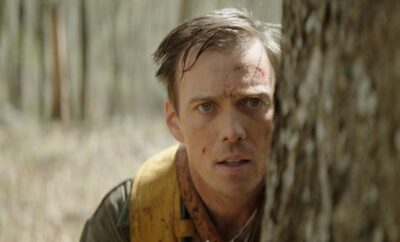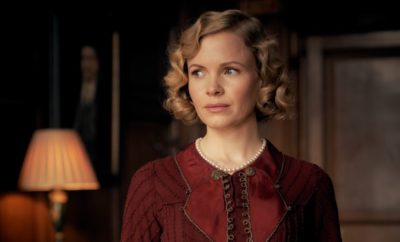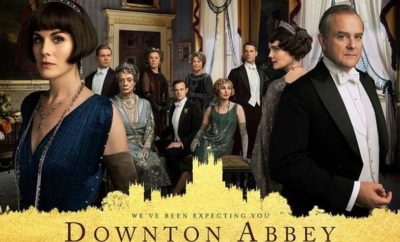Movie Reviews
The Chaperone
By: Maggie Stankiewicz
The Chaperone is a film adapted from Laura Moriarty’s 2012 novel of the same name. The Chaperone is deeply rooted in its 1920s setting and follows the journey of real-life dancer and eventual actress Louise Brooks and her…you guessed it…chaperone to the esteemed Denishawn School of Dancing in New York City. As Louise and her chaperone find themselves at odds, so do viewers struggle to find a true connection with its premise.
Louise, played by the kinetic Haley Lu Richardson, is only sixteen years old and on the precipice of stardom at the film’s beginning when she accepted to study into the Denishawn program. During a showcase performance for her conservative townsfolk Louise encounters Norma (Elizabeth McGovern), a woman who while elegant, does not quite fit in with the rest of the others. Norma compliments Louise’s dance, a bold move for a Wichita woman – and offers to accompany Louise to New York for the school’s intensive program.
Louise and her family call upon Norma to make arrangements for her trip with Louise to New York and their journey begins in a whirlwind. Both Norma and Louise start their pilgrimage to New York with a sense of wonder, but Norma’s husband is not too keen on the idea, a sure sign of turbulence to come. It quickly becomes apparent that Louise’s precocious nature will conflict with Norma’s sensibilities. The two struggle to make it work, but push through if not for necessity’s sake. Norma soon reveals that she was an orphan from New York and the two women find some footing on their mutual desire to find something in New York, whether that be a sense of freedom or a sense of closure.
Louise and her dutiful chaperone make it to New York where Louise dances to her heart’s content and battles with the city’s temptation and inviting sense of autonomy, something every teenager girl wants. Louise is brash and provocative, a perfect foil to Norma’s proper, prudish disposition. The film remains relatively predictable up to this point, witnessing a nuanced power struggle between a docile woman and a self-aware teenager, but it does take a few surprising turns that help replenish the audience’s attention. For example, when Norma decides to seek information on her birth family and is promptly blocked by tight-lipped nuns, a charming janitor named Joseph (Géza Röhrig) offers her both his help and his heart. Joseph and Norma’s affair is a callback to Norma’s defense of minorities earlier in the film, but the social implications are not explored and their potential never quite met.
While it feels important to watch Louise blossom into a star and to witness Norma experience different kinds of love through her relationship with the young woman, and Joseph as well, the film fails to truly grip the audience. Viewers will know what is supposed to be poignant, but they might not necessarily feel it. This is by no fault of the cast, who deliver compelling performances across the board, though the true culprit of the film’s shortcomings is hard to identify.
Overall, The Chaperone fails to reflect the legendary life of Louise Brooks but that doesn’t mean it’s a bad film. If anything, the movie feels more like a character study than a riveting depiction of a woman’s rise to stardom during the roaring twenties. While there is nothing quite wrong with it, some audiences may grow restless.





You must be logged in to post a comment Login